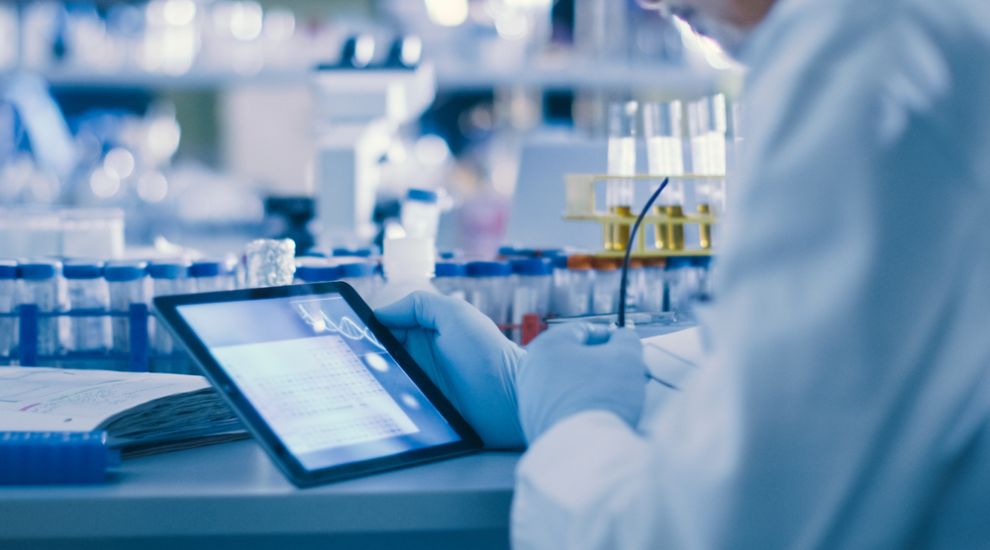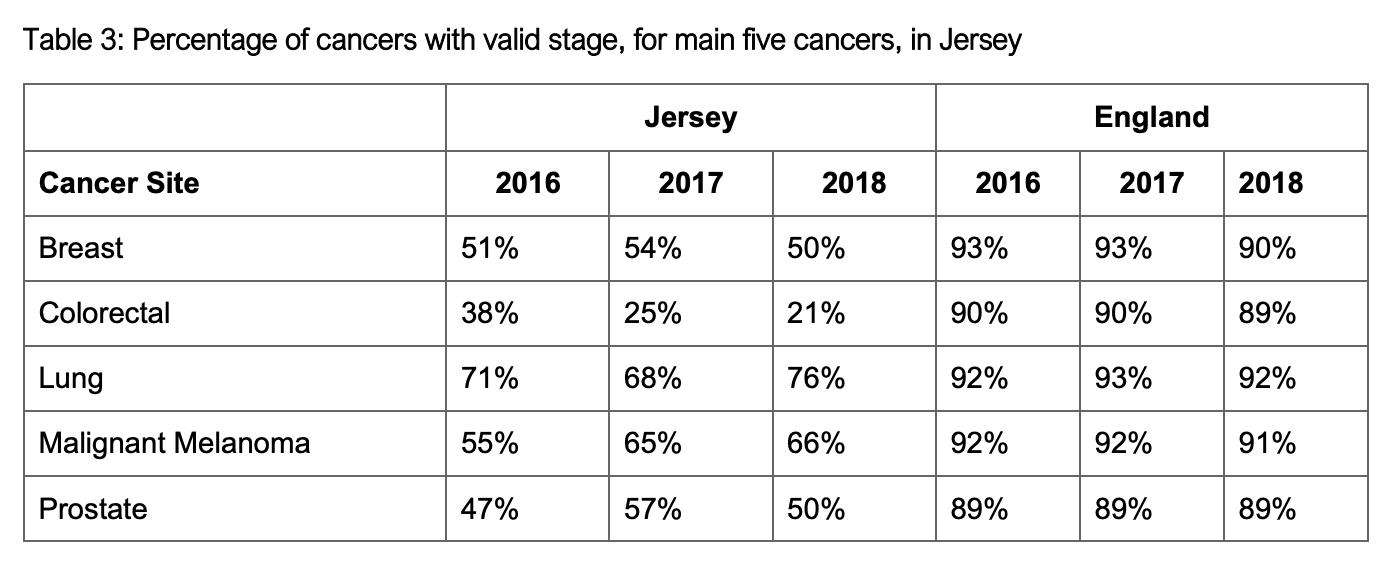


Jersey is far behind England in reporting high-level cancer stage data which enables decision-making regarding where money is best spent on preventative measures – but new software putting that information at medics' "fingertips" is on its way.
A report on local cancer incidence and mortality rates in the Channel Islands was published yesterday in both Jersey and Guernsey.
It was the first of two catch-up reports expected this year which aim to reduce a long-standing reporting lag and bring cancer data more up-to date.

Pictured: Yesterday's report on local cancer incidence and mortality rates in the Channel Islands only included data up to 2018.
However, yesterday's report only featured data up to 2018, while the second report – due to be published by the end of this year – will include data up to 2020.
Public Health officials criticised the "long reporting lag" on recording cancer data and said they were "actively working to reduce this".
Yesterday's report also highlighted the lack of cancer staging data in Jersey.
Stage is a measure of how much a cancer has grown and spread, with more advanced stages meaning the cancer is bigger or has spread to other parts of the body. There are usually fewer treatment options at an advanced stage.
In England, the government set out a plan for 75% of all stageable cancers to be diagnosed as an early stage by 2028.
In order to achieve this, it is crucial that stage data is recorded for as many cancer diagnoses at possible – with a target of at least 70%.
England surpassed this aim for the five main cancers – breast, colorectal, lung, malignant melanoma, and prostate – with valid staging data for each reaching above 89% from 2016 to 2018.
But in Jersey, the percentage of valid staging data for the five main cancers was 76% or under from 2016 to 2018 – falling as low as 21% for colorectal cancer in the latter year.

Pictured: Percentage of cancers with valid stage for the main five cancers in Jersey compared to England.
Oncology Consultant Dr Elizabet Gomes Dos Santos, who is Jersey's Service Lead in Oncology, explained the importance of staging data.
She said: "Having documented the staging in the data is extremely important, because this report is a high level report for Public Health and for the Minister to make decisions on where to invest money and make policies towards improving the health of the population.
"So understanding what stage cancer is in – if it's advanced stage, or if it's an early stage – is extremely important to understand where money needs to be put to improve that."
Dr Dos Santos explained that the problem in Jersey is not at patient level – as doctors will know at what stage their individual patient's cancer is at – but it is an issue of collating all of the data to make sure the island has oversight at a higher level to enable decision making.
She said that digitalising the process is crucial in ensuring that more data is recorded.
Dr Dos Santos said: "At the moment, it's all it's been a manual process to get all the staging data through so there's a bit of a lag with that but, as we move into digitalising our services, that will improve."

Pictured: Dr Dos Santos said that digitalising the process is crucial in ensuring that more cancer staging data is recorded in Jersey.
She added that the main purpose of the data is to aid understanding.
"The staging is so important to support governments and public health in making decisions on policy and not wasting their money," she said.
Dr Dos Santos explained that the island's cancer strategy highlight that it is "extremely important for us to look at how we can improve all of this".
She said: "To understand the data is extremely important as, if we don't have the numbers, then we then we can't justify acting on them – especially in a higher level with the Minister and Public Health."
Dr Dos Santos is confident that the island has been some "great advances" regarding the digitalisation of cancer services in recent years.
She added: "Next month, we're launching new software that will support all of this information being easily accessed.
"We have coding teams and teams from the UK that will now have this [data] at their fingertips and make it easier."
Comments
Comments on this story express the views of the commentator only, not Bailiwick Publishing. We are unable to guarantee the accuracy of any of those comments.